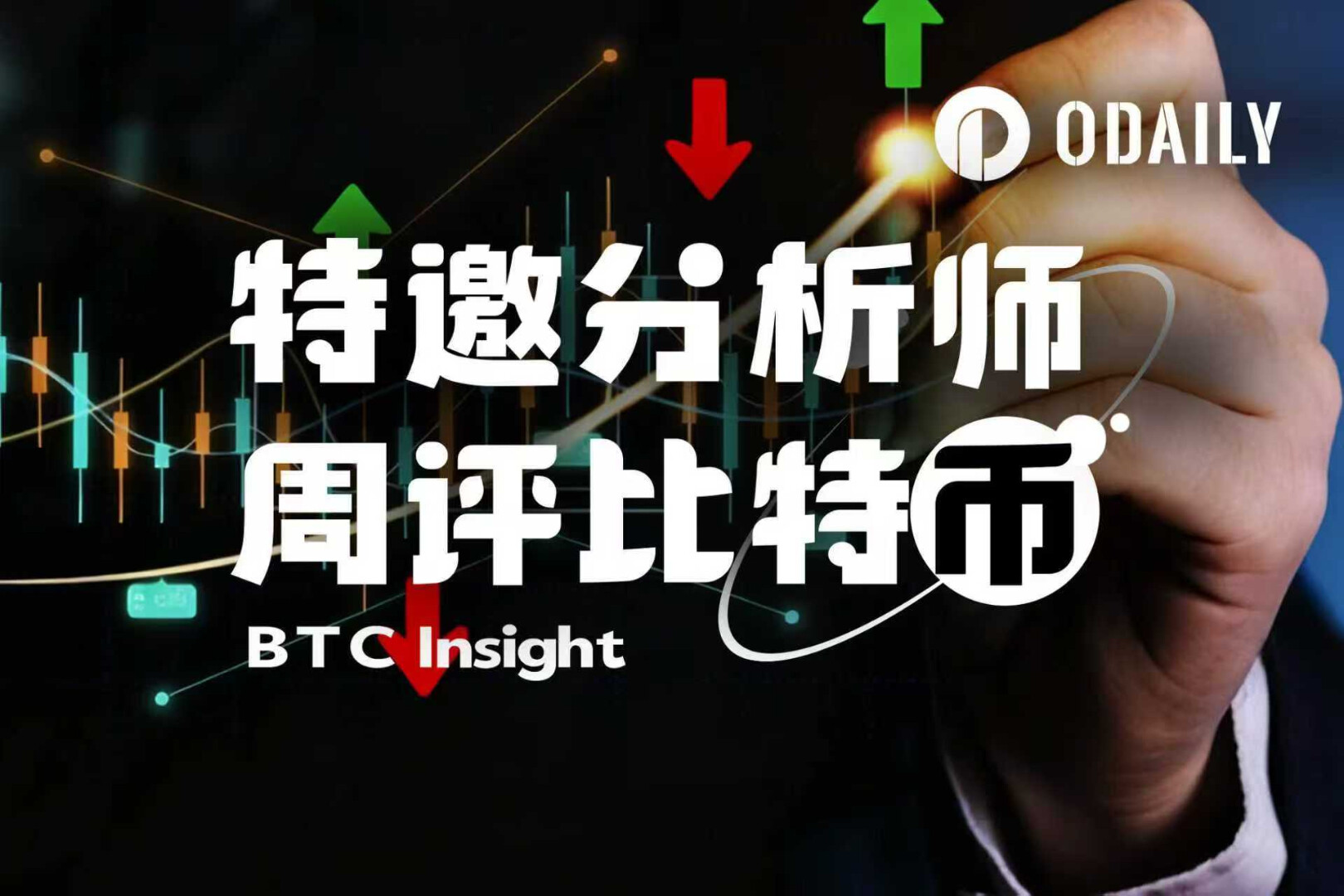Bankless: DeFi is eating the world, but users aren't hungry
Original post by independent researcher Donovan Choy
Compilation of the original text: The Way of Defi
Compilation of the original text: The Way of Defi
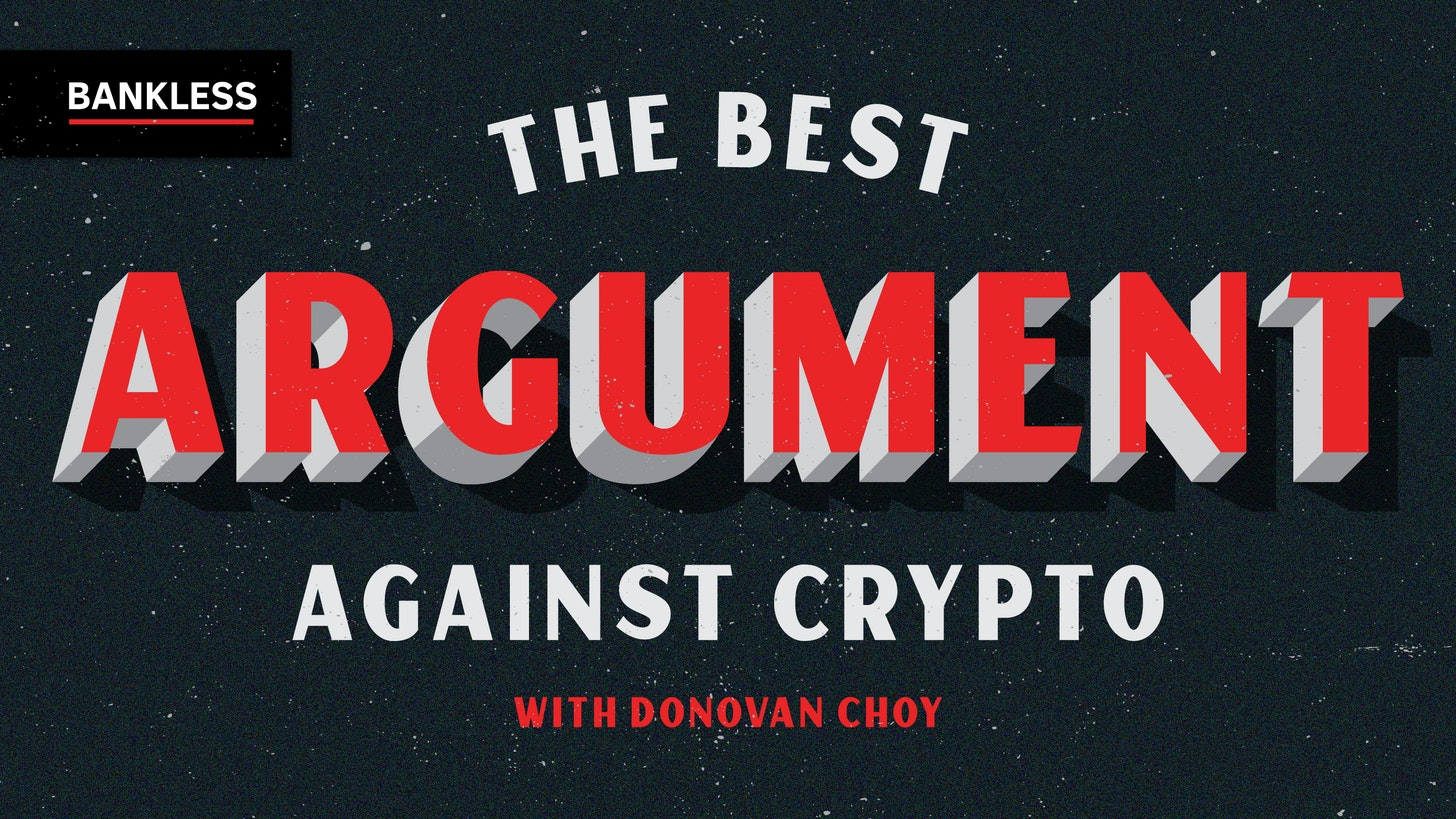
In a 2005 articleclassic articleMiddle, Free Marketism and Nobel Laureate in EconomicsJames Buchananargues that the predatory growth of nation-states is driven in large part not only by opportunistic politicians, but also by citizens' desire to evade personal responsibility.
Politicians are empowered, Buchanan writes, because freedom comes with more responsibility, and people fear freedom because of it. They would rather embrace the “cocoon of protection” that regulates the state, delegating individual responsibility for civic life to a central guardian who bandages our wounds when we fall, rather than face the spontaneous imperatives and unpredictability of a free-market economy.

This is not a unique observation.
French political scientist Alexis de Tocqueville made similar observations almost two centuries ago when he left the French monarchy for the newly formed American Republic. Tocqueville marveled at the new republic, but also worried that the cost of democratic self-government might be prohibitively high. He thinks this could lead to a tendency for citizens to surrender more and more of their liberties to a paternalistic, overbearing government.
In his 1835 masterpiece, Democracy in America, he wrote:
“Man's will is not broken, but is softened, bent and directed: men are seldom compelled by it to act, but they are constantly constrained; such a power is not to destroy, but to prevent existence; To confuse a people until each is reduced to a flock of timid and industrious animals, of which the government is their shepherd. "
In many ways, this is similar to the biggest weakness in the crypto space today. It's a stateless system that needs to be self-governing, but it's hard to imagine how interested most users in crypto today are in decentralization, or having the self-discipline that decentralization requires.
Decentralization means self-management
The raison d’être of DeFi is the democratization of the financial world. Thanks to the Internet and smart contracts, DeFi eliminates or reduces the influence of central entities (governments, companies, or even worse, a combination of both) in the banking industry. Think back to the Great Recession of 2007-08, the combination of the two had devastating effects.
Decentralization is desirable because it makes it difficult for organized groups to collude and manipulate the rules in their favor, it is not a public good. DeFi promises to create a permissionless financial world, and ordinary users are empowered to pursue their own financial freedom.
However, a stateless financial system does not equate to zero governance. This is an important point worth repeating twenty times. A common misconception is to use no government as a synonym for no governance.
Many things in everyday life are regulated by self-monitoring mechanisms arising from bottom-up spontaneous order and collective action, ranging from trivial things like the social norms that regulate behavior in the workplace to the monitoring of the public communities in which we live. informal rules.
Economist Elinor Ostrom won a Nobel Prize for her extensive empirical work detailing the self-government of citizens in forests, offshore fisheries, irrigation systems, and policing systems without central intervention. A wealth of peer-reviewed social science research has shown that efficient self-government has a way of emerging even in the most unstable social settings, such as gangland prisons, impoverished authoritarian nation-states, and the 17th-century Amsterdam stock market.
DeFi is no exception. The absence of political regulations only means that self-government will be more of a self-responsibility. Rather than trusting politicians or centralized political parties to regulate DeFi, it is a responsibility of self-custody that we choose to assume and develop.
Contrary to popular belief, DeFi is already full of self-regulating mechanisms. These rules and self-adopted policies constrain buck-passing and guard against predatory behavior:
The most common is the capital overcollateralization model used in staking and yield farming to discourage debt accumulation.
Another is the ubiquitous use of protocol tokens as a form of voting on protocol changes.
Despite the lack of financial laws, many blue-chip DeFi protocols, such as Compound, Uniswap or MakerDAO, are willing to submit their smart contract code for audit.
DeFi also provides insurance against smart contract hacks. Agreements in this submarket include Armor and Nexus Mutual, with a TVL of $1.3 billion as of December 2021.
Mainstream media will continue to paint DeFi as the "Wild West of Finance." But the reality is far less turbulent or lawless than the metaphor suggests.
Self-discipline is universal.
Get used to centralized solutions
While formal rules and mechanisms will play an important role, they only constitute one half of the governance puzzle. As Buchanan and Tocqueville point out, a system can only be self-sustaining if users themselves are willing to participate in self-governance.
The indifference to decentralization is clearly visible. The best example of this can be seen in DeFi’s attraction to centralized platforms and solutions.
Taking Binance Smart Chain (BSC), the third largest blockchain, as an example, its validator network has a total of 21 validators. Compared with the tens of thousands and hundreds of thousands of validator nodes in blockchains such as Bitcoin and Ethereum, very few.
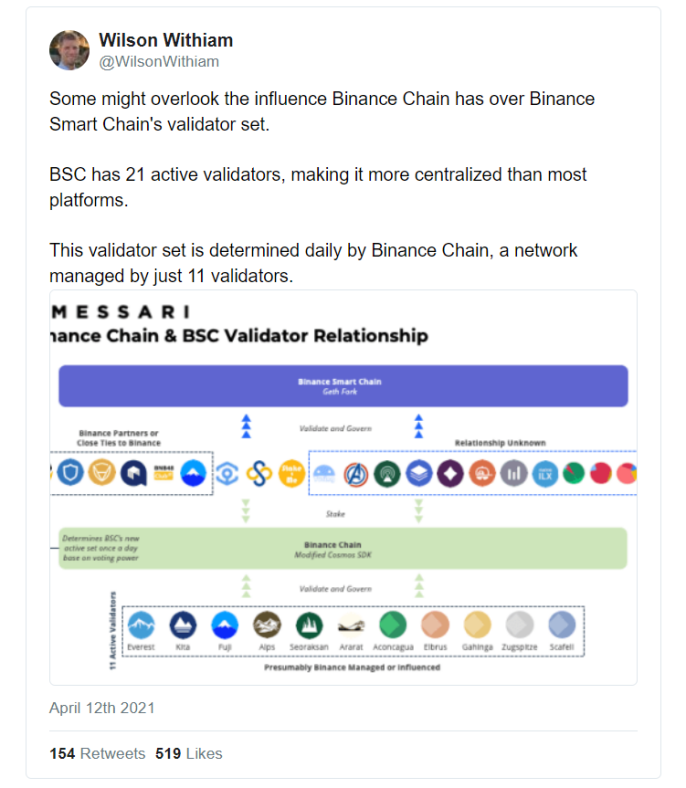
To become a verifier on BSC, a sky-high prepaid pledge of 519,000 BNB (277 million U.S. dollars) is required, while only 32 ETH (about 80,000 U.S. dollars) are required on Ethereum 2.0, and 2,000 AVAX (136,000 U.S. dollars) are required on Avalanche. USD), not to mention a decentralized staking pool like Rocket Pool, which costs even less.
Additionally, its native token, BNB, is also one of the least publicly issued, with 50% allocated to insiders.
From a decentralization standpoint, these are all good red flags. 🚩
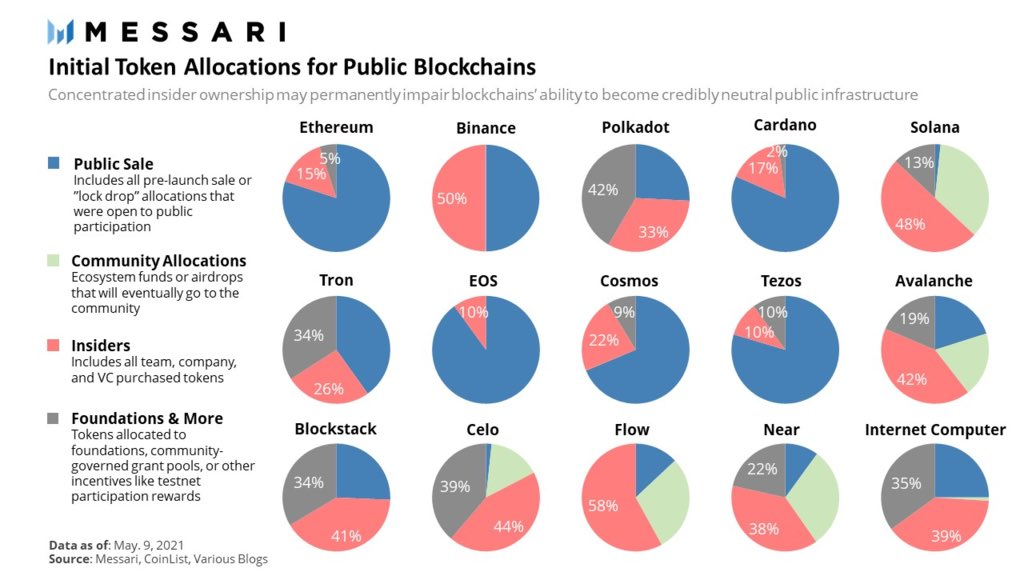
However, the fact that the BSC network is relatively centralized does not affect most of its users. As of December 2021, the network has a TVL of $16 billion, and the influx of subscribers continues, in ever-increasing numbers.

The appeal of BSC is easy to understand. Because centralization allows short-term scalability, users can avoid the high gas fees required for decentralized node verification. In the field of blockchain games, users often mint and trade NFT assets in the game. A report by Dappradar found that BSC is ahead of all other smart contract Layer-1, with an average of more than 750,000 unique users per day in July .
The trend towards centralization is evident elsewhere as well. Take the wildly successful blockchain game Axie Infinity, for example. To accommodate its explosive growth in June, it introduced a centralized Ronin sidechain for scalability that same month.
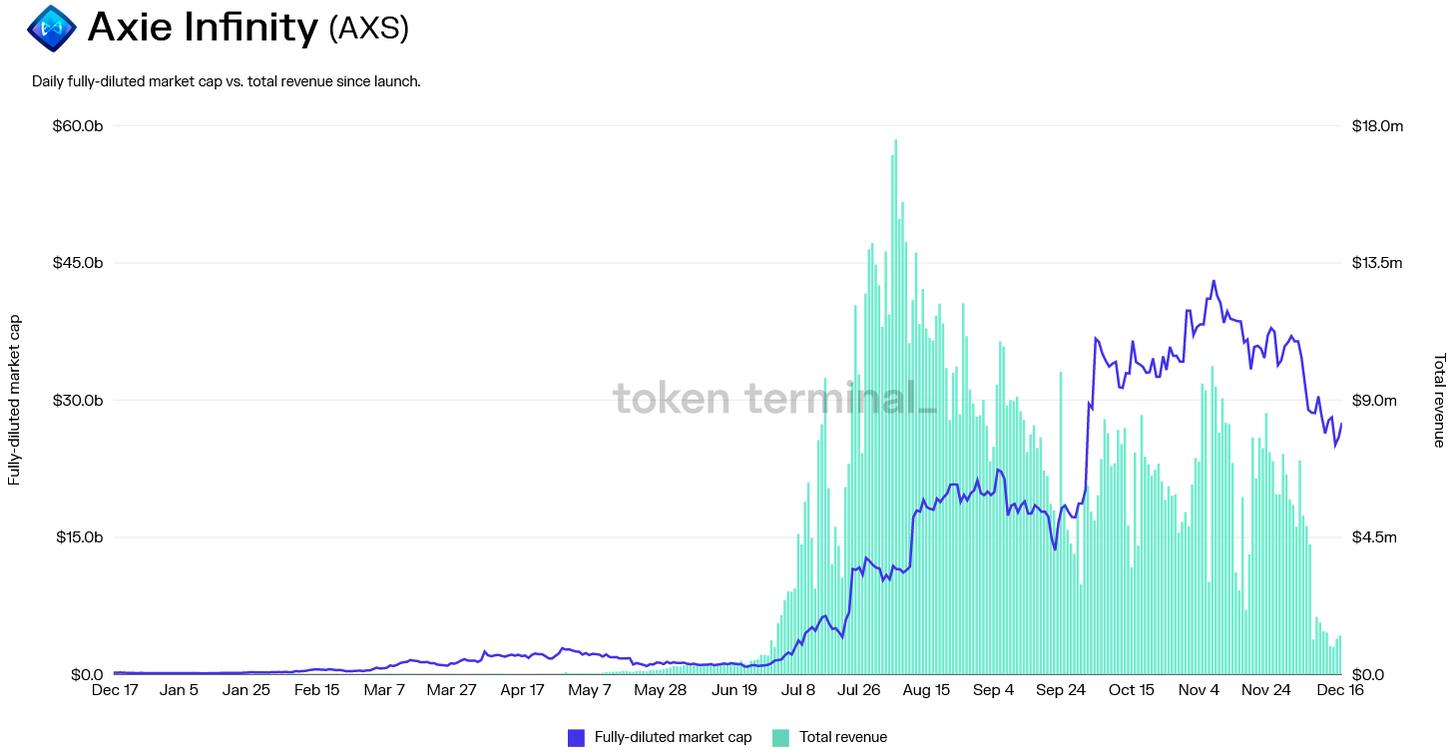
As a business decision, it proved to be ingenious and very profitable. But from the point of view of cryptographic ideals, this is problematic. Centralized hosted bridges like Ronin employ"trusted", which basically means that instead of relying on decentralized validation of their transactions, players rely on their reputation and the integrity of the developers. Axie players sacrifice safety for short-term efficiency.
However, if developers have the power to delete or modify players' hard-earned assets, then game-to-earning (P2E) is no longer game-earning, but play-to-hopefully-earn. This just takes us back to the traditional gaming world, where big developer studios have too much control over how their in-game economies should work. Immutable economic ownership of their games should be even more important when we consider that the majority of Axie players rely on the game as a respite from the economic devastation of COVID-19.
Axie Infinity is not alone. Many other cross-chain solutions such as BitGo's"Wrap Bitcoin"(WBTC), has traveled the same tricky path of centralization, as encapsulated assets are fundamentally governed by a centralized entity that oversees the gateways and rules by which assets are locked and minted. As of December 19, 2021, approximately 259,000 Bitcoins ($12.2 billion) are held by BitGo.
When asked about the future of multi-chain in the Messari mainnet panel, Terra co-founder and CEO Do Kwon joked that users trust him, he "Might not steal $1 billion from Terra's Shuttl bridge connected to Ethereum’. (To Kwon’s credit, he also admits that this solution is too centralized to stand the test of time).
Balancing Security and Cost
decentralized"decentralized"is its biggest selling point in a world where there are so many successful centralized solutions.
Why does centralization succeed in a space where decentralization is considered a core value? The most straightforward explanation is that users don't care. Maybe users do care, but not enough to sacrifice cost/efficiency/economic benefits.
Users forget that Ethereum’s gas fee is just a real price to pay for being an alternative to the existing centralized financial system, and this system can afford to give us"free"transaction costs because it has achieved economies of scale.
We utilize blockchain products, dressed and marketed in the language of decentralization, immutability and user ownership. But false marketing conceals the institutional reality that these products are centralized.
Analyst at MessariRyan WatkinsWell said: “Each cycle people are blinded by the latest centralized solutions to all blockchain problems.”
The crypto space faces a tension between the long-term philosophical ideals of DeFi and the practical uses of DeFi here and now. Technology and developers are moving fast towards a decentralized world, but user needs and mainstream culture are still too accustomed to the speed and convenience that centralization brings.
Software may be eating the world, but users aren't hungry. This is a problem that the encryption field must face, sooner rather than later.

With every high-profile protocol hack, the arms of the state find more and more reasons to reach out to DeFi.
And how long will it take for DeFi to stretch its arms back?
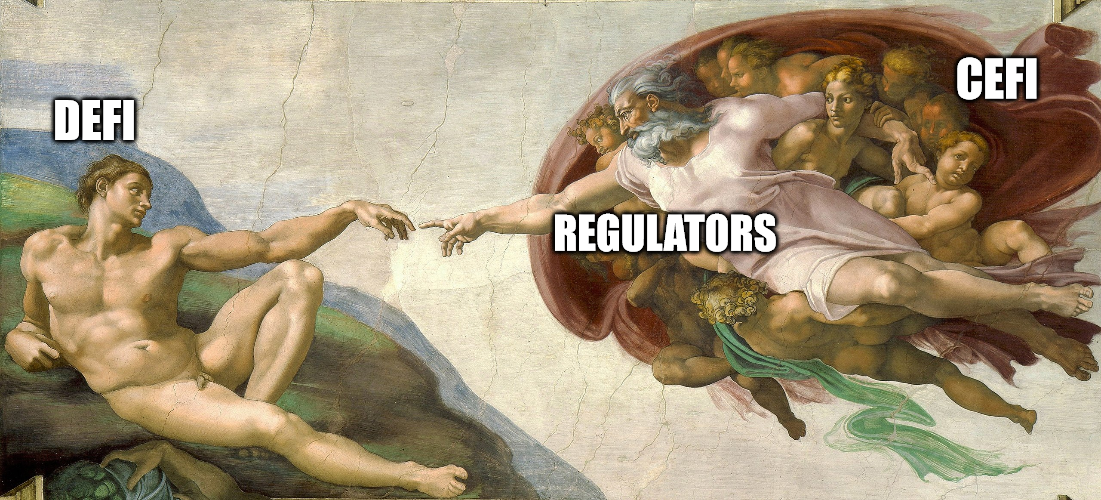
Impact and Conclusion
It's hard to blame centralized crypto products.
After all, companies are simply responding to user needs. If users don't need them, they cease to exist. Before we reach the nirvana of non-custodial, fully trustless transactions, and immutable assets, CeFi will inevitably play some role, and the DeFi landscape will resemble an archipelago of CeFi, DeFi, or CeDeFi solutions.
Then what?
We must not forget that decentralization is the crux of the whole problem.
History has seen many great societies turn catastrophically when they made short-term trade-offs for profit. The path to decentralization is not easy, and it shouldn't be. It will be strongly resisted by rent seekers who take advantage of the apathy of ordinary users in an attempt to keep their share of centralization profits. As long as users are not interested in self-government, they will continue to be victims of protocol hacks, rug pulls, exploitation, and constant upheaval from predators.
From a free-market perspective, that's not necessarily a bad thing. Attacks expose flaws, upset complacency, stimulate a process of trial-and-error discovery, and lead to new knowledge. This is why banks pay millions of dollars to white hat hackers every year. Mistakes and failures are just the price of innovation and progress.
The cryptocurrency community that cares about decentralization needs to support and empower the developers who are pushing these frontiers. In exchange for wrapped bitcoin products that rely on centralized custodians, we should support protocols and developers with decentralized networks like renBTC. Instead of centralized stablecoins, we should utilize decentralized stablecoins like Dai and Frax as much as possible.
Artists and developers need to rethink the merits of decentralized platforms like Genie, NFTX, or Rarible, rather than centralized NFT marketplaces like FTX or Coinbase. Users in their own DAO must be hyper-sensitive to centralization tendencies, such as their native tokens may be distributed.
Things will get tougher before it gets better, and the crypto space needs a lot of user education.
Original link


